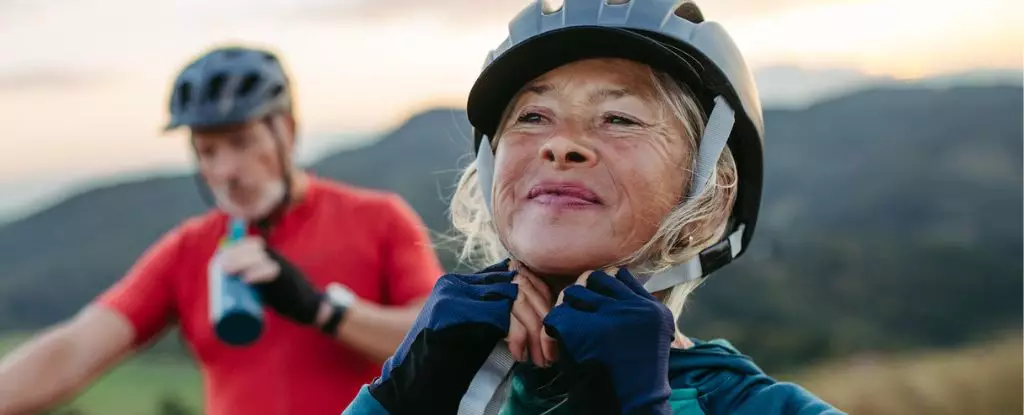In today’s frantic society, many find themselves caught in a relentless cycle of work, family obligations, and an array of daily responsibilities that leave little room for self-care. Unfortunately, this inevitable hustle often leads to a spike in anxiety levels. As we navigate through this fast-paced world, the prospect of taking care of mental health can seem daunting, leading many to believe that regular exercise is an unattainable luxury. However, recent research unveils a ray of hope for those wrestling with their anxiety: weekend hikes may serve as a powerful antidote.
The Research Perspective
A groundbreaking study conducted by scholars from Yangzhou University in China and Waseda University in Japan evaluated the exercise habits of 13,740 U.S. adults. The participants were categorized into four distinct groups: inactive, insufficiently active, regularly active (exercising at least three times a week), and the so-called “weekend warriors,” who manage to squeeze in physical activity just once or twice weekly. The results were striking. Compared to the inactive group, every category demonstrated diminished anxiety levels, but the weekend warriors significantly stood out, boasting a remarkable 35 percent decrease in anxiety.
This compelling finding highlights how even minimal physical activity can pave the way to mental well-being, countering the myth that engaging in regular, exhaustive workouts is the only path to reduced anxiety. The researchers articulated, “Physical activity interventions have emerged as a viable and evidence-based therapeutic strategy for mitigating the symptoms of anxiety disorders,” thereby framing weekend hiking as a practical tool for those who may feel trapped by regimented schedules.
Beyond Physical Benefits
Despite these promising findings, the study’s limitations must be acknowledged. The methods relied on self-reported data, which can sometimes be unreliable. Furthermore, while the connection between exercise and mental health is well-documented, the nuanced interplay of exercise’s myriad benefits—ranging from improved cardiovascular health to enhanced emotional resilience—requires further examination.
Interestingly enough, the study brought to light that anxiety reductions were particularly significant among individuals with diabetes or lower income levels. This observation raises questions about the underlying factors driving this phenomenon. Might it be that access to natural environments enhances the benefits of physical activity for these demographics? It’s an area ripe for future exploration, shedding light on how tailored interventions could better serve vulnerable populations.
The Science Behind Movement
The neurological mechanisms that bind physical exercise to mental wellness have been subjected to extensive scrutiny. Past research has elucidated how exercise activates brain areas that bolster resilience against stress, promoting an overall sense of calm. This physiological response serves to reinforce the importance of physical activity in cultivating emotional resilience. The researchers identified that the mere act of engaging in exercise—regardless of frequency or intensity—can still yield positive mental health outcomes.
Moreover, the study posited that sensitive factors such as gender, age, race, education level, marital status, BMI, smoking status, and alcohol consumption had minimal influence on the anxiety-reducing effects of the weekend warrior pattern. This is an exciting discovery; it suggests the universal applicability of this approach across diverse populations, emphasizing inclusivity in the pursuit of mental well-being.
Practical Implications for the Average Person
For many, the weekend presents a refreshing opportunity to reconnect with nature or simply take time away from screens and responsibilities. This study encourages individuals who may not be able to fit regular exercise into their busy schedules to seize those precious weekend hours for hiking or other forms of physical activities. It cultivates a deeper awareness of how just a couple of hours outdoors can lead to measurable improvements in mental health, particularly for those who have long considered themselves too busy to prioritize exercise.
Embracing the “weekend warrior” mentality not only aids in reducing anxiety but also promotes a more profound appreciation for the simple joys of life. For anyone battling anxiety or simply trying to navigate a busy life, the takeaway is crystal clear: it’s never too late to harness the healing power of nature through movement. So lace up those hiking boots and prepare to reclaim your mental clarity and emotional well-being.


Leave a Reply